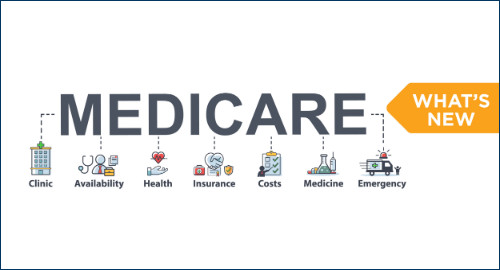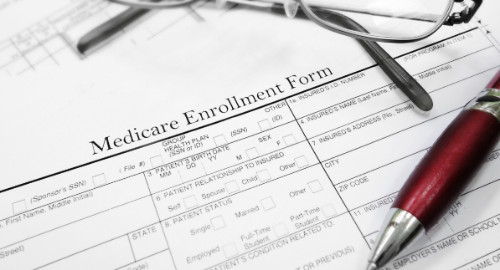How Medicare covers bone density tests and osteoporosis medications
Unfortunately, as we get older, our bodies lose more bone than we build, meaning we lose bone density. Osteoporosis happens when the loss of bone density goes too far, says the National Institutes of Health (NIH). Weaker bones mean greater risk for breaks and fractures, and broken bones can lead to serious problems for older adults.
It’s always important to talk with your doctor or other healthcare provider about your overall health and any health problems you are having, including your risk for bone loss (and how to prevent osteoporosis). Being over 50 increases your risk for osteoporosis, and while it can affect both men and women, women are at a much higher risk says the National Osteoporosis Foundation (NOF). Keeping this in mind, if you are Medicare eligible, you are likely concerned with how Medicare covers bone density tests and coverage of medications used to treat osteoporosis.
How Medicare covers bone density tests
Bone density tests help determine if you have normal bone intensity, low bone density (osteopenia) or osteoporosis, and they are the only test that can formally diagnose osteoporosis. They can also help you find out how well an osteoporosis medication is working. Medicare covers bone density screening under Part B (medical insurance) every 24 months (or more often if medically necessary) as long as you meet one or more specific conditions, outlined by Medicare.gov. Medicare Advantage (MA) plans cover the same screenings without applying deductibles, copayments or coinsurance as long as you see an in-network provider and meet Medicare’s eligibility requirements for these services.
How Medicare covers medications used to treat osteoporosis
There are medications available to treat osteoporosis by slowing the rate of bone loss and even rebuilding bone strength. There are oral drugs such as tablets or liquids or prescribed injectable drugs from your doctor’s office. An MA plan with Part D coverage (MAPD) or a standalone Medicare Part D plan will help cover costs, whether partial or in full, and coverage varies by plan. If you are Medicare-eligible and are looking for the best Medicare coverage to meet your healthcare needs, make sure that you look at a plan’s drug list (formulary) to confirm that it is covered.
Transition drug refills
When talking about prescription drug coverage, it’s also important to mention transition drug refills, also known as transition fills. These are a temporary, one-time, 30-day supply of a particular drug that you were taking before switching to a different Part D or MAPD plan, or if your current plan changed coverage at the start of the calendar year. Transition fills allow you to get temporary coverage for drugs that are not on your drug list or that have certain coverage restrictions (such as prior authorization or step therapy). They aren’t for new prescriptions but help transition you to a similar drug in the plan’s formulary.
Aspire Health Plan uses a Pharmacy Benefits Manager (PBM), and our members can initiate a request by calling our PBM directly at 888-495-3160.
H8764_MKT_BoneDensity_Blog_0621_C










